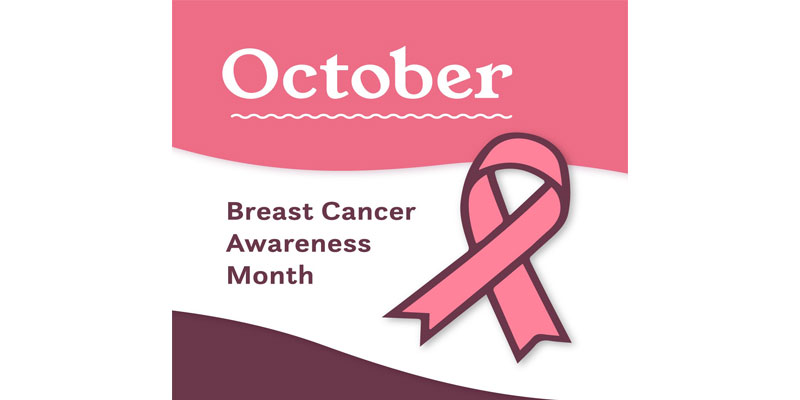How to Support Someone with Breast Cancer
Breast cancer is a life-changing diagnosis that impacts not only the person with cancer but also their loved ones. Offering the right support can make a huge difference in their journey, but it’s important to be mindful of their unique needs and feelings. Here are several ways to provide thoughtful and compassionate support:
- Educate Yourself about Breast Cancer

Understanding the basics of breast cancer, its stages, treatment options, and potential side effects can help you empathize and communicate more effectively. It can also reduce any misconceptions or fears you may have about the disease. The person may feel more comfortable discussing their experience if they know you’re informed.
– Helpful Tips:
– Research reputable sources, such as the American Cancer Society, National Cancer Institute, or Breast Cancer Now.
– Avoid overwhelming them with medical advice; instead, let them share as much (or as little) as they want about their condition.
- Be There Emotionally
Emotional support is one of the most important things you can offer. Breast cancer can evoke a wide range of emotions, from fear and anger to sadness and hope. Being a compassionate listener helps the person feel validated in their experiences and less isolated.
– Helpful Tips:
– Let them talk without interrupting, and avoid trying to “fix” things.
– If they cry, don’t feel like you have to offer solutions—just being present is enough.
– Be patient if they’re not ready to talk; respect their emotional boundaries.
- Offer Practical Support
Cancer treatment can be physically draining and time-consuming. Offering practical help can relieve some of the day-to-day burdens they face, like managing household tasks, appointments, or child care.
– Helpful Tips:
– Offer specific help: “I can drive you to your treatment on Tuesdays” is more effective than saying, “Let me know if you need anything.”
– Prepare meals or organize a meal delivery system with other friends or family.
– Assist with household chores or offer to run errands.
– Help them manage appointments, whether it’s organizing transportation or being an extra set of ears during doctor visits.
- Respect Their Choices and Independence

While you may want to help in every way possible, it’s important to respect their autonomy. Some people with breast cancer want to maintain as much independence as possible, and it’s crucial to respect their decisions about treatment and lifestyle choices.
– Helpful Tips:
– Don’t impose your opinions or judgments on their treatment choices.
– Ask them how they would like to be supported, rather than assuming what they need.
– Respect their privacy and don’t share their medical information with others unless they have given permission.
- Be Sensitive to Their Physical Needs
Breast cancer treatments like surgery, chemotherapy, and radiation can cause fatigue, pain, nausea, hair loss, and other side effects. Offering physical comfort and understanding their limitations is key.
– Helpful Tips:
– Be mindful of their energy levels—don’t push them to socialize or participate in activities if they’re not feeling up to it.
– Encourage them to rest when needed and offer help with physical tasks.
– Keep in mind that their appearance may change due to treatment, and avoid making comments that could be insensitive. Instead, reassure them of their strength and beauty.
- Help Them Stay Positive (But Avoid Toxic Positivity)
It’s important to offer encouragement and hope, but be careful of engaging in “toxic positivity,” where you may unintentionally downplay their feelings by focusing solely on staying positive.
– Helpful Tips:
– Acknowledge the challenges they’re facing while offering support: “I know this is really hard, but I’m here with you every step of the way.”
– Avoid phrases like, “Everything happens for a reason,” or “You just have to stay positive.” These can invalidate their emotions.
- Respect Their Need for Space
While it’s important to show your support, it’s also essential to respect their need for solitude. Breast cancer can be physically and emotionally exhausting, and they may not always be in the mood for visitors or conversation.
– Helpful Tips:
– Don’t take it personally if they want time alone. Healing can sometimes require quiet and rest.
– Ask them if they prefer phone calls, texts, or in-person visits, and follow their lead.
- Continue to Check In
Cancer treatment can be a long process, and even after treatment, recovery can take time. Check in regularly, not just immediately after the diagnosis or during treatment.
– Helpful Tips:
– Send a simple message or card to remind them you’re thinking of them, even on days when they’re not feeling well.
– Celebrate milestones and offer support during follow-up treatments or screenings, which can cause anxiety.
– Be a steady presence; people with cancer often find that some friends fade away over time. Your consistent support can mean the world to them.
- Help Them Connect With a Community
Sometimes connecting with others who have gone through similar experiences can be incredibly helpful. Help them find a support group, whether online or in person, where they can share and hear stories from others.
– Helpful Tips:
– Suggest organizations like Breast Cancer Care, Living Beyond Breast Cancer, or local cancer support groups.
– Offer to go with them to events or meetings if they need a companion.
- Be Mindful of Your Own Feelings
Supporting someone through breast cancer can be emotionally demanding. It’s normal to feel overwhelmed, anxious, or sad about what your loved one is going through. Make sure to take care of your own emotional health, too.
– Helpful Tips:
– Seek your own support system, whether through friends, a counselor, or support groups for caregivers.
– Don’t be afraid to express your own feelings, but do so without adding pressure on the person with cancer.
Conclusion
Supporting someone with breast cancer requires a mix of empathy, patience, and practical assistance. Whether it’s offering a listening ear, helping with everyday tasks, or simply being there through their emotional ups and downs, your presence can have a profound impact. Most importantly, always let them guide the way—listening to their needs and respecting their space is key to offering the best support possible.



